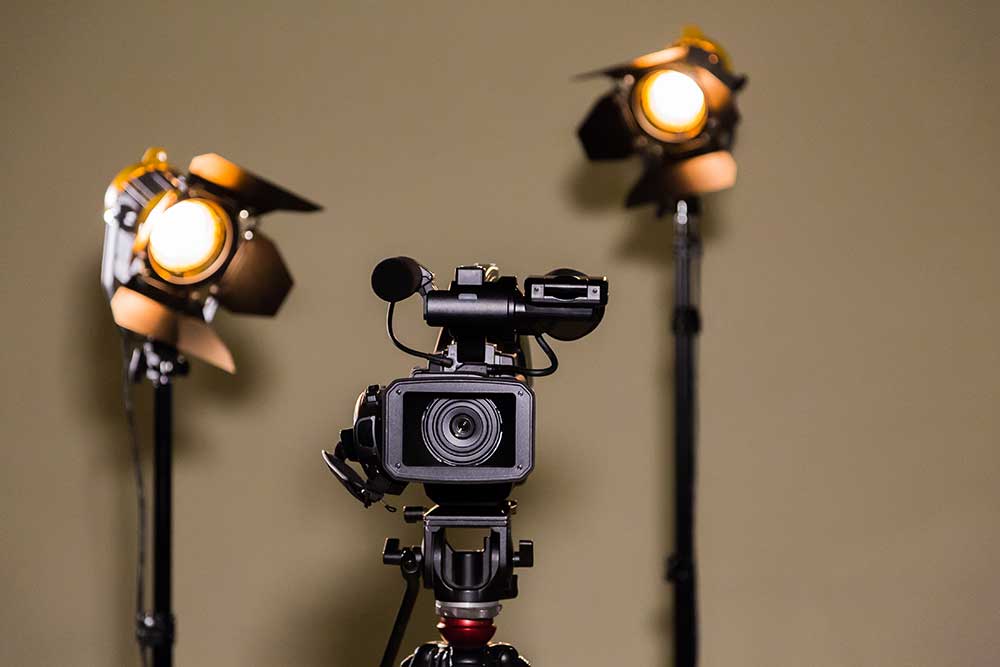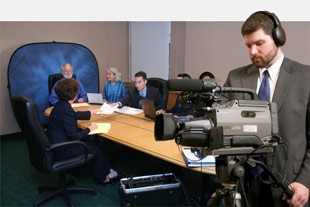The Function of Lawful Videography in Depositions and Trials
Legal videography has become a vital tool in both depositions and tests, providing a complex strategy to recording witness statements. By catching not just the talked word yet additionally the subtleties of non-verbal interaction, this medium enhances the trustworthiness of testimonies and maintains essential proof for future proceedings (legal videography). As attorneys progressively recognize its value, it prompts a deeper examination of how these visual documents can affect juror assumptions and test outcomes. What ramifications might these advancements hold for the future of legal technique?

Value of Legal Videography
Legal videography plays an essential role in the documentation and presentation of depositions and tests. This customized field integrates technical skills with legal knowledge to develop a reliable document of proceedings that can substantially influence case end results. The aesthetic facet of legal videography enhances the understanding of witness testimony, allowing jurors and courts to observe not just the talked words but additionally the temperament, emotions, and body language of the witnesses.
Furthermore, lawful videography provides an objective account of events, reducing the potential for misinterpretation that can accompany written records alone. This visual documentation works as a crucial tool throughout test discussions, promoting a more clear and more persuasive narrative for both complainants and defendants. Furthermore, the ability to replay video sections throughout court process enables legal groups to highlight essential points, reinforcing their arguments properly.
The significance of lawful videography prolongs beyond the court room; it also plays an essential role in preserving proof for future recommendation, whether for allures or further lawful action. Therefore, its integration into the legal procedure is vital for ensuring a fair and exact representation of the realities, inevitably adding to the pursuit of justice.

Process of Legal Videography
While capturing the subtleties of depositions and trials, the process of lawful videography includes several vital steps that guarantee top quality, accurate recordings. An expert legal videographer prepares by evaluating the case products and recognizing the details demands of the deposition or test. This prep work consists of acquainting themselves with the individuals and the context, which helps in recording relevant details.
On the day of the recording, the videographer establishes up the required devices, which normally includes high-def video cameras, microphones, and appropriate illumination. Making certain ideal angles and sound quality is vital, as it directly affects the effectiveness of the recording. The videographer connects with lawyers and participants to establish methods, guaranteeing that everybody comprehends the recording process.
During the deposition or trial, the videographer diligently videotapes the process, paying close interest to both spoken and non-verbal cues. This includes capturing the demeanor and reactions of witnesses and lawyers. these details After the session wraps up, the videographer may edit the footage for quality and conformity with legal criteria, creating an end product that precisely reflects the process for future recommendation and use in lawful contexts.
Benefits in Depositions
The incorporation of videography in depositions offers countless advantages that boost the general process of gathering proof. One main benefit is the capability to capture witness testaments with visual and acoustic fidelity, providing an extra precise representation of the witness's demeanor, tone, and body movement. This multidimensional method permits attorneys and courts to evaluate trustworthiness better than conventional written records alone.
Furthermore, videographed depositions work as a powerful device for preserving testament. Ought to a witness become unavailable for test, their taped deposition can be played in court, ensuring that their proof stays accessible and appropriate. This facet substantially lowers the risk of shedding crucial info that can impact instance end results.

Lastly, videography enhances the overall professionalism and trust of the deposition process, instilling confidence in clients regarding the thoroughness of their lawful depiction (legal videography). By leveraging modern technology, lawful specialists can significantly improve the effectiveness of depositions
Influence on Trials
In numerous trials, the integration of videography can significantly influence the discussion of proof and the court's assumption. Lawful videography captures witness testimonies and crucial evidence in a vibrant style, enabling jurors to engage with the product on numerous degrees. This visual part improves the storytelling aspect of a test, supplying context and view it now emotional vibration that standard text-based evidence may do not have.
Additionally, video recordings can act as effective tools visit the website for impeachment throughout interrogation. When inconsistencies develop between a witness's prior declarations and their court room statement, video proof provides an objective reference that can persuade jurors' viewpoints. This immediacy and quality can strengthen the trustworthiness of a celebration's story while all at once weakening opposing debates.

Future Trends in Legal Videography
As we look towards the future of lawful videography, a number of emerging patterns guarantee to reshape its role within the courtroom. One considerable pattern is the assimilation of synthetic intelligence (AI) in video evaluation and editing and enhancing. AI can simplify the procedure of recognizing crucial minutes in videotaped depositions, enabling lawyers to swiftly access appropriate material, thus enhancing performance in instance prep work.
Furthermore, the surge of digital fact (VIRTUAL REALITY) and enhanced reality (AR) technologies is anticipated to change how jurors experience evidence. legal videography. By submersing jurors in a substitute atmosphere, these innovations can offer a more extensive understanding of intricate situations, causing more enlightened deliberations
Moreover, the enhancing need for remote depositions, sped up by the COVID-19 pandemic, will likely continue. Lawful videographers will require to adapt to brand-new software application and platforms to guarantee top quality recordings in digital setups.
Finally, the growing focus on data protection will demand stricter methods for keeping and sharing video proof. As the legal landscape progresses, legal videographers need to stay abreast of these patterns to keep their significance and performance in the judicial process.
Verdict
In summary, legal videography offers a critical function in the judicial process, improving the integrity of depositions and trials. As modern technology continues to develop, legal videography is poised to additional transform its function within the lawful landscape.
Comments on “Reliable Legal Videography to Enhance Case Presentations.”